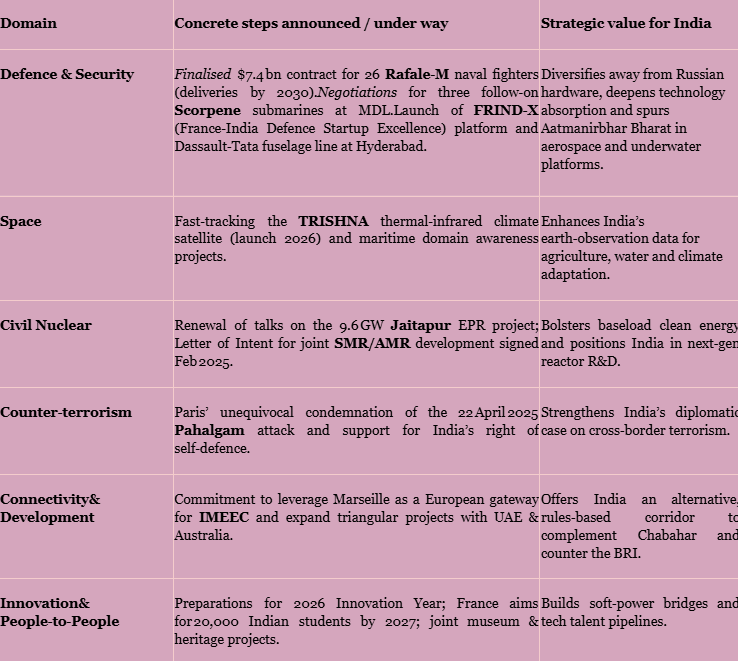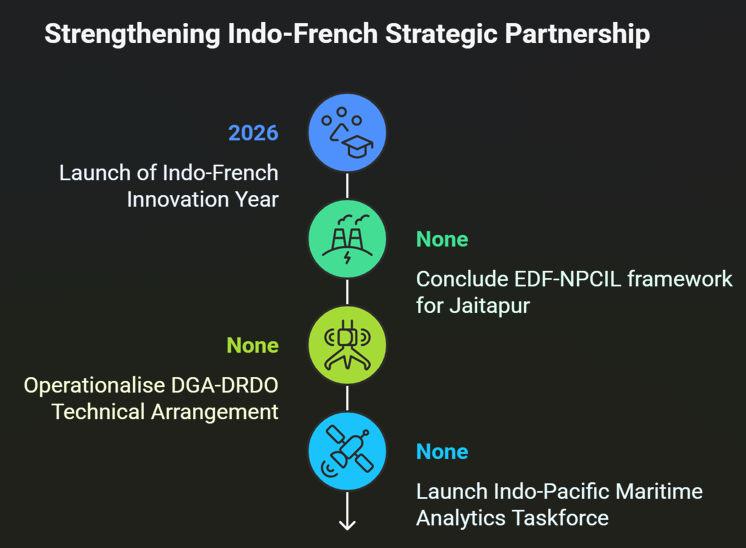Font size:
Print
India–France Strategic Partnership Gains Fresh Momentum in Key Sectors: Defence, Space, and Nuclear
India–France Strategic Partnership Surges Ahead: Major Boost to Defence, Space and N-Cooperation
Background of this visit : From 1998 to Horizon 2047
- 1998 – First Indo‑French Strategic Partnership (India’s very first).
- 2008 – Bilateral civil‑nuclear agreement opened the door to technology transfers after the India‑US nuclear waiver.
- July 2023 – Horizon 2047 Roadmap adopted during PM Modi’s Bastille‑Day visit, building three pillars: Security & Sovereignty, Planet, People.
2026 has been designated the India–France Year of Innovation, providing a thematic driver for AI, deep‑tech and academic mobility.
Context: Recently, External Affairs Minister S. Jaishankar and French Foreign Minister Jean‑Noël Barrot met in Marseille and agreed to “intensify” cooperation across defence, space and civilian nuclear energy, while also aligning positions on counter‑terrorism, the Indo‑Pacific and the India‑Middle East‑Europe Economic Corridor (IMEEC).
What is the Broader geopolitical significance of this visit?
- Indo‑Pacific balancing – France is the only EU state with territories and a naval presence in both the Indian and Pacific Oceans. The convergence on freedom of navigation and joint patrols complements QUAD mechanisms without provoking bloc politics.
- European defence diversification – With the Ukraine war stretching NATO industry, France sees India as a key long‑term market and partner in supply‑chain resilience, evidenced by the Hyderabad Rafale fuselage line.
- Energy transition leadership – Civil‑nuclear collaboration (EPR + SMR) and joint climate satellites align with India’s net‑zero 2070 pathway and France’s low‑carbon diplomacy.
What are the Key take‑aways from the Marseille dialogue?


What are the challenges ahead ?
- Financing & liability – Jaitapur costs and India’s 2010 Civil Liability for Nuclear Damage Act remain sticking points.
- Technology‑transfer depth – While the Rafale fuselage line is a start, engine IP, AIP modules for submarines and advanced propulsion remain protected.
- Geostrategic headwinds – Middle‑East turbulence (Gaza, Red‑Sea) could slow IMEEC timelines; rising India‑Pakistan tensions post‑Pahalgam demand crisis management mechanisms.
